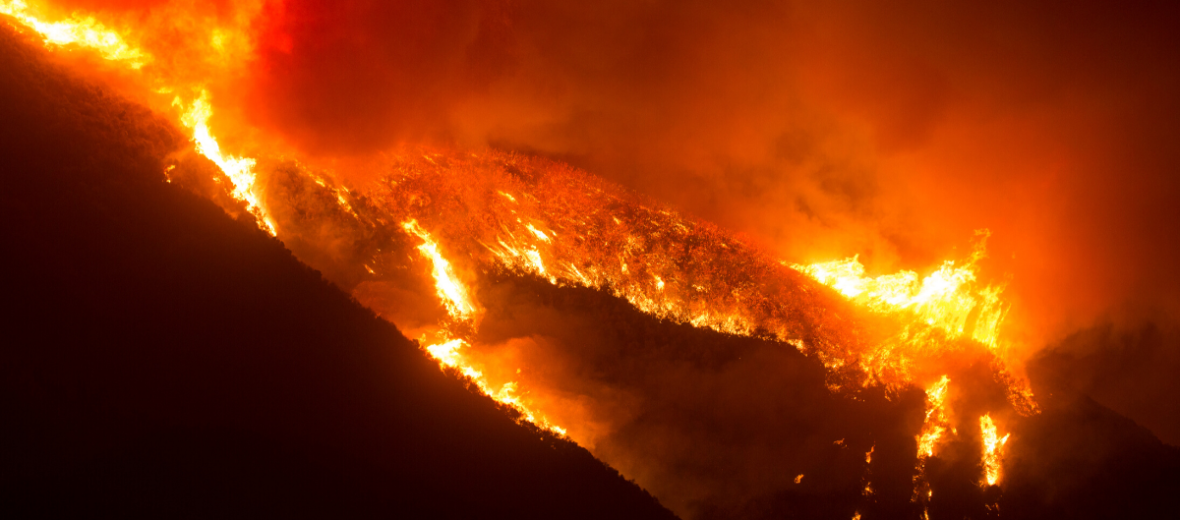
PyroLife International Symposium: Towards an Integrated Fire Management
Synopsis by Judith Kirschner and Mariña Fernández.
The Mediterranean has entered a new era of extreme wildfires. It is an opportunity for temperate Europe to take action now.
Over the last years, Europe has experienced the onset of unprecedented wildfire seasons. Marc Castellnou discusses lessons learned in the Mediterranean and what to expect for temperate Europe.
Highlights:
- During the last decade, countries in Southern Europe experienced increasingly severe wildfire seasons mainly due to changes in land use and enhanced by global warming. A similar increase in wildfire events is expected for Central and Northern Europe.
- Experience from the Mediterranean shows that land management is an essential tool to decrease fuel loads, interrupt landscape connectivity and thereby reduce vulnerability to extreme wildfires.
Mediterranean countries in Europe are traditionally subject to wildfires, but the parameters influencing fire behaviour and fire dynamics have changed over the last decades. Since the mid-20th century, rural depopulation and the abandonment of traditional land use techniques allowed the expansion of forests, resulting in the build up of fuels and, hence, increased fuel continuity throughout the landscape. Once set ablaze, wildfires were able to burn with high intensity, consuming fuels with high rates of fire spread. In addition, urban areas expanded into formerly wildland areas, increasing the wildland-urban interface (WUI) and posing a higher risk of fire to communities.
Embed from Getty ImagesAs fire events started to occur simultaneously, traditional fire system services were forced to shift from a policy of protecting trees and forests towards a policy of defense to protect lives and properties. In other words, forest fires have evolved into a matter of civil protection, similarly to flooding in Northwest Europe.
The new fuel conditions in European landscapes combined with effects of climate change —milder and warmer winters and drier and hotter summers leading to a prolonged fire season or ‘climate change season’ as Castellnou refers to it— are creating ideal circumstances for the occurrence of extreme intensity wildfires (called megafires).
In the Mediterranean, recent megafire events such as 2017 in Portugal and 2018 in Greece challenged fire fighters’ experience and capacities. Fire services in the Mediterranean realised that experience and strategies developed from events of the past no longer serve to tackle megafires. This means that policies of prevention must be redefined, from building resources and investing in suppression capacity towards landscape management and fuel control, creating a landscape where firefighting services have the opportunity to operate.
Global warming is predicted to also transform forests close to densely populated areas in Central and Northern Europe. Connectivity within landscapes, high fuel loads and changeable atmospheric conditions create fire-prone systems. In the situation observed, these countries are likely to “jump from an almost no-fire scenario to an extreme fire scenario, with no learned knowledge”. Large fires such as in Sweden (2014) or in England during the first pan-European fire season in 2018 provide a glimpse of what is predicted for the future. Temperate countries have the opportunity now to learn from the experience of the South, before they face similar conditions within a few years.
Embed from Getty ImagesAccording to Castellnou, landscape management is the most suitable tool to proactively reduce wildfire hazard by means of creating mosaics of lands where fires cannot spread as easily. European peoples used fires to manage their lands centuries ago, but traditional fire culture knowledge has been lost over time. Reintroducing techniques such as prescribed burnings to reduce fuel loads, and increasing fire resilience in the WUI with self-protection measures could further aid to reduce the risk of megafires. At the same time, Castellnou advises that it is necessary to involve all of society rather than considering fire services to be in charge alone. Decisions taken today will shape landscapes of the coming years, reaching far beyond a single human life-time. That is why these decisions need to be supported from scientific research and models, but also from policies and society as a whole. “The conditions we used to know are not longer here.” It is the moment for Europe to choose between a “keep on” attitude, confronting decisions in a defensive approach, or to adapt, become active and shift the strategy towards a creative fire ecology approach to deal successfully with wildland fires of the future.




Great work all! Thank you for sharing this valuable information!